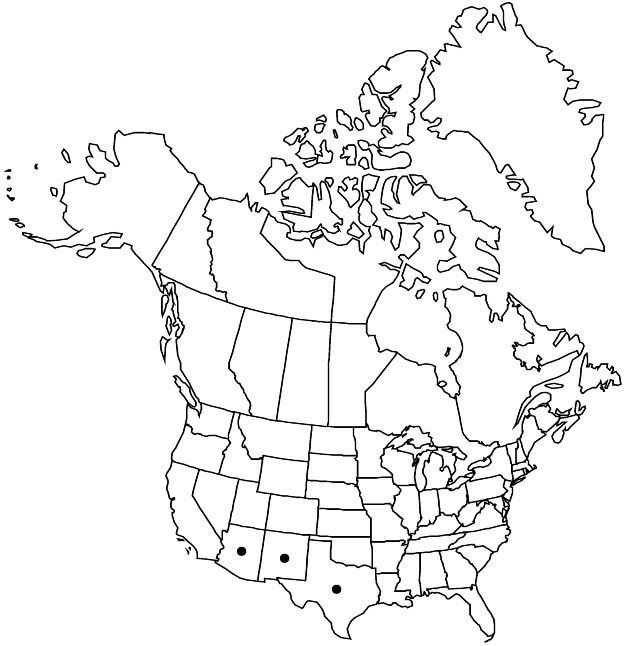Difference between revisions of "Euphorbia serrula"
Rep. U.S. Mex. Bound. 2(1): 188. 1859.
FNA>Volume Importer |
imported>Volume Importer |
||
| Line 51: | Line 51: | ||
|publication year=1859 | |publication year=1859 | ||
|special status= | |special status= | ||
| − | |source xml=https:// | + | |source xml=https://bibilujan@bitbucket.org/aafc-mbb/fna-data-curation.git/src/bb6b7e3a7de7d3b7888a1ad48c7fd8f5c722d8d6/coarse_grained_fna_xml/V12/V12_417.xml |
|genus=Euphorbia | |genus=Euphorbia | ||
|section=Euphorbia sect. Anisophyllum | |section=Euphorbia sect. Anisophyllum | ||
Revision as of 21:09, 27 May 2020
Herbs, annual, with slender taproot. Stems prostrate or ascending, 5–20 cm, usually pilose to villous, rarely glabrate. Leaves opposite; stipules usually distinct, rarely connate at base, triangular or laciniate into subulate segments, 1–1.8 mm, glabrous; petiole 0.3–0.8 mm, glabrous or villous; blade oblong, ovate, or elliptic, sometimes falcate, 3–11 × 2–5 mm, base asymmetric, rounded to hemicordate, margins sharply serrate to serrulate, usually with conspicuous teeth at base of leaf, apex usually obtuse, rarely acute, surfaces frequently with red blotch in center, not papillate, sparsely pilose to glabrate; only midvein conspicuous. Cyathia solitary at distal nodes; peduncle 0.4–1.8(–2.3) mm. Involucre obconic, 0.8–1.1 × 0.8–1 mm, glabrous; glands 4, greenish yellow, usually reniform to elliptic, rarely circular, 0.1 × 0.1–0.2 mm; appendages usually white, rarely light pink, orbiculate, 0.1–0.3 × 0.2–0.4 mm, distal margin entire or crenulate. Staminate flowers 7–15. Pistillate flowers: ovary glabrous; styles 0.3–0.5 mm, 2-fid 1/2 length. Capsules oblate, cocci not elongated nor terminating in empty portion, 2–2.6 × 3.2–3.7 mm, glabrous; columella 1.7–2.1 mm. Seeds white to light brown, broadly ellipsoid to ovoid, 3–4-angled in cross section, 1.5–1.8 × 1.1–1.3(–1.5) mm, smooth to minutely rugulose or with scattered small depressions.
Phenology: Flowering and fruiting spring–fall.
Habitat: Desert scrub, with creosote bush, grasslands with mesquite and yucca, rarely in ponderosa pine woodlands, often sandy substrates.
Elevation: 300–1900 m.
Distribution

Ariz., N.Mex., Tex., Mexico.
Discussion
In Mexico, Euphorbia serrula is found from Chihuahua and Coahuila south to Puebla.
Selected References
None.